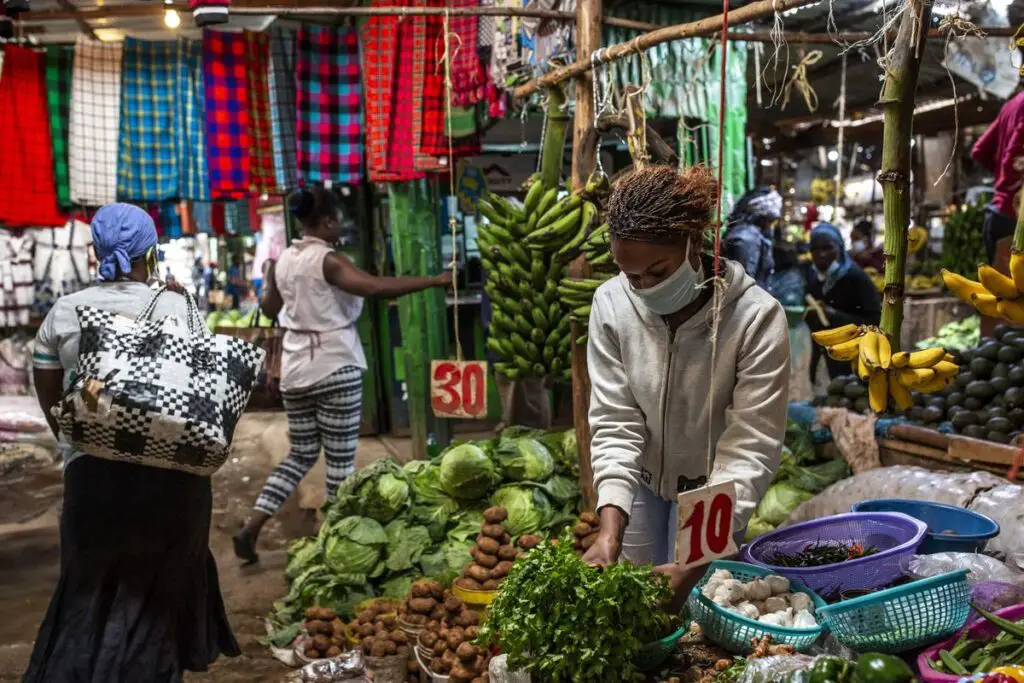Kenya’s inflation has marginally dropped for the third straight month providing relief to households that have been battling runaway inflation since April last year.
The overall year-on-year inflation rate as measured by the Consumer Price Index (CPI) was 9.0 per cent in January 2023, down from 9.1 per cent in December and 9.5 per cent in November last year.
It hit a five-year high of 9.6 per cent in October 2022, data by the Kenya National Bureau of Statistics (KNBS) shows. The lower inflation (measure of the cost of living) in January however remains above the preferred ceiling of 7.5 per cent.
According to the government statistician, the high inflation was due to increase in prices of commodities under transport (13.1%), food and non-alcoholic beverages (12.8%) and housing, water, electricity, gas and other fuels (7.3%) between January 2022 and January 2023.
These three divisions account for over 57 per cent of the weights of the 13 broad categories. Prices of commodities under furnishings, household equipment and routine household maintenance recorded a 9.3 per cent increase over the period.
The CPI increased by 0.2 per cent from an index of 128.99 in December 2022 to 129.29 in January 2023. The month-to-month Food and Non-Alcoholic beverages Index increased by 0.2 per cent between December 2022 and January 2023.
The Housing, Water, Electricity, Gas and Other Fuels’ Index, increased by 0.3 per cent between December 2022 and January 2023.
This was mainly due to increase in prices of 50 Kilowatts electricity units and 200 Kilowatts electricity by 0.5 per cent and 0.4 per cent, respectively.
“The Transport Index remained the same between December 2022 and January 2023. As observed in the previous period, the prices of diesel and petrol remained unchanged in January 2023,” KNBS Director-General Macdonald Obudho said on Tuesday.
The Education index increased by 0.9 per cent between December 2022 and January 2023 as schools re-opened. This was mainly driven by an increase in tuition fees for pre-primary, primary and secondary schools in the same period.
Government response to rising inflation
The Central Bank of Kenya (CBK) has been putting in place measures, among them the recent raising of interest rates to tame the rising inflation, a measure seen to be taken by apex banks across the world including the US.
CBK, however, on Monday retained its base lending rate at 8.75 per cent with its Monetary Policy Committee (MPC) noting a weak global growth outlook, decline in global commodity prices, easing inflationary pressures, geopolitical tensions, persistent uncertainties, and measures taken by authorities around the world in response to these developments.
“The MPC reviewed the outcomes of its previous decisions and measures implemented to mitigate the adverse economic impact and financial disruptions,” CBK governor Patrick Njoroge notes.
According to CBK, the easing inflation is mainly due to lower food prices. Food inflation declined to 13.8 per cent in December from 15.4 percent in November, largely driven by a decrease in prices of maize and milk products, following improved supply attributed to the ongoing harvests and impact of the recent short rains, respectively.
Additionally, prices of edible oils and wheat products declined due to lower global commodity prices with the easing of international supply chain disruptions.
Fuel inflation declined to 12.7 percent in December 2022 from 13.8 percent in November, due to lower international oil prices, but remains elevated on account of the scaling down of the fuel subsidy and increases in electricity prices due to higher tariffs.
“Overall inflation is expected to decline in the near term, also supported by the recently announced Government measures to allow duty-free imports of key food items particularly maize, rice and sugar,” Njoroge added.
This means the cost of living is likely to ease in the coming months. Additionally, volatility in global financial markets has moderated amid expectations of a slower pace of monetary policy tightening.
Nevertheless, risks remain mainly reflecting geopolitical tensions particularly the ongoing war in Ukraine, and the pace of the monetary policy response in the advanced economies.
Outlook
Two surveys conducted ahead of the MPC meeting—the CEOs Survey and Market Perceptions Survey—revealed sustained optimism about business activity and economic growth prospects for the next 12 months.
The optimism was attributed to the continued resilience of the private sector, and the impact of Government interventions including in the agriculture and MSMEs sectors, both of which are expected to support employment and growth.
While respondents remain concerned about domestic inflation, they expect it to ease in the coming months.
Additionally, their concerns about global recession and inflation have moderated. The Survey of the Agriculture Sector revealed that prices of most food items were expected to decline or remain unchanged in February 2023.
Additionally, respondents expected supply of food items, mainly maize, rice and wheat to increase in the coming months on account of ongoing harvests and the expected duty-free imports.
Nevertheless, respondents identified high input costs and unpredictable weather conditions as the major factors constraining agricultural production.
